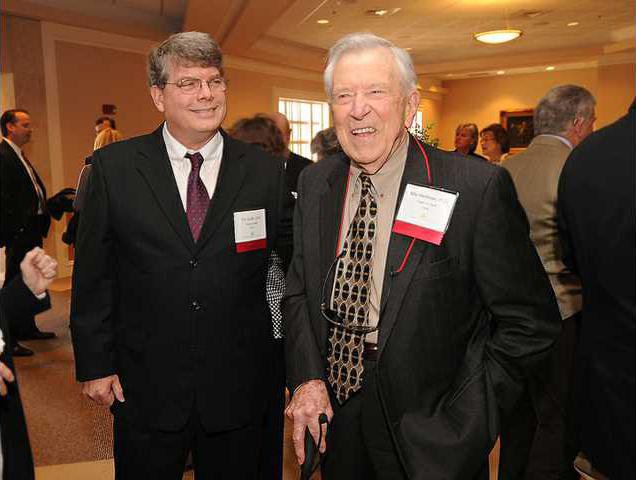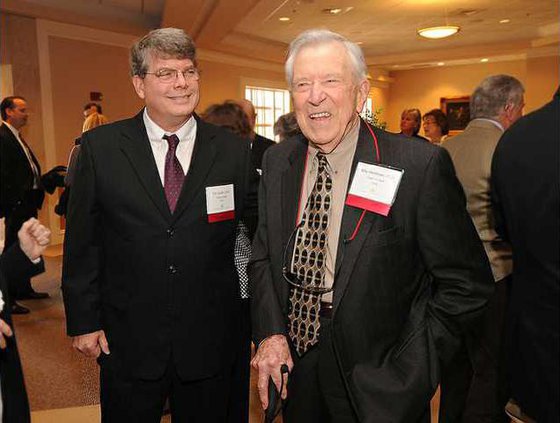When Dr. Billy Hardman came to Gainesville in 1943, he was one of 14 physicians in town. In 1953, he became just the third person to serve Northeast Georgia Medical Center as chief of staff.
On Thursday, he gathered with many who have followed in his footsteps at an event honoring those who have helped lead the hospital's physicians. Eighteen former chiefs of staff and family members of 10 others were in attendance at the Legacy of Leadership celebration held at First Baptist Church in Gainesville.
"I think it's a great opportunity for the community to pay tribute to the physician community but more importantly to those doctors who have been willing to go way above and beyond just their normal medical practice," said Doug Carter, chairman of the Northeast Georgia Medical Center Board.
The combined resumes of many in the room outline a history of medical advancement.
Dr. Ralph Hopkins served as chief of staff in 1991, just after the hospital opened its first imaging center.
"I look back at those early days of the imaging center and I see what's come from that and the new imaging center," he said. "I'm personally very pleased that portion of the medical community has continued to do well and has continued to grow."
Dr. Warren Stribling, who served as chief of staff in 1972 and whose wife was in attendance Thursday night, brought the first defibrillator to the hospital.
"He was a cardiologist and that was a fairly new thing then," said the doctor's wife, Mary Emma Stribling. "Now of course we have the heart center. It was just a smaller group to work with and it was a fun, happy time because the group was more intimate."
Thursday's event, held in connection with National Doctors Day, was conceptualized by current chief of staff, Dr. Tim Scully. Scully said in his three months in the position, he's developed a deep respect for those who came before him.
"It's a necessary task and its one that I'm honored to be able to try to do," he said. "And I think that the people who have come before have done a tremendous job in improving quality of care and physician loyalty to the hospital."
Since its inception in 1951, the hospital has expanded to a community of more than 500 physicians. Hopkins said while each chief of staff has played his or her part in that growth, each came in simply hoping to do their best.
"One arrives at ones place where one expects to be successful and work and contribute and all those things," he said. "But one does not expect to see it be this way. (The growth is) over the top in terms of what we would have expected."
As he addressed the group, Carter thanked the physicians for their contributions and encouraged the community to face today's health care challenges with the same dedication.
"We have got to have continued physician leadership and willingness for those physicians to tackle leadership roles and work above and beyond the hard work that they do on their private practices," he said.

